Where is Aromatherapy Used
Aromatherapy has been used for centuries as a natural way to promote health and well-being.
The benefits of aromatherapy are vast, from reducing stress and anxiety to improving sleep quality and boosting the immune system.
In this article, we will explore the history of aromatherapy, the different types of essential oils, the benefits of aromatherapy, how it is used, safety precautions to consider, and aromatherapy plants commonly used.
Let’s dive in and discover the world of aromatherapy!
Key Takeaways:
What is Aromatherapy?
Aromatherapy is a holistic therapy that utilizes essential oils extracted from plants to promote health and well-being. These natural oils are often used in conjunction with advice from a healthcare provider to address various physical and emotional concerns.
Essential oils are derived from different parts of plants through processes like distillation or expression. Each oil carries unique properties that can benefit the body and mind. The principles of aromatherapy center around the idea that these aromatic compounds can interact with the body to stimulate healing and relaxation. In healthcare settings, aromatherapy is used alongside traditional treatments to enhance patient well-being and alleviate symptoms naturally.
History of Aromatherapy
The history of aromatherapy dates back to ancient cultures where plant extracts were used for their therapeutic properties. Over time, research and scientific evidence have supported the efficacy of aromatherapy in promoting health and wellness.
From the Egyptians using aromatic oils in religious rituals to the Greeks incorporating fragrant herbs in their medical practices, aromatherapy has been intertwined with various civilizations. In the Middle Ages, essential oils gained popularity for their healing properties, with distillation techniques advancing in the Renaissance period. Fast forward to the 20th century, the modern revival of aromatherapy saw a surge in scientific studies recognizing the psychological and physiological benefits of essential oils.
How Does Aromatherapy Work?
Aromatherapy works by stimulating the body’s olfactory system, sending signals to the brain that can affect hormones and various body functions. The inhalation of essential oils plays a key role in this process.
When essential oils are inhaled, they enter the nasal cavity and activate the olfactory receptors, which are directly connected to the limbic system in the brain – the area responsible for emotions, memory, and behavior regulation. The limbic system’s response to these aromatic compounds influences the release of neurotransmitters, such as serotonin and dopamine, which are crucial for mood stabilization.
This interaction promotes relaxation, reduces stress levels, and can even improve cognitive function. Certain essential oils have specific effects on hormone production and balance, aiding in areas like sleep regulation and emotional well-being.
What are Essential Oils?
Essential oils are concentrated extracts derived from plants that carry unique aromatic properties. They are known for their diverse uses, ranging from promoting relaxation to addressing specific health concerns.
These oils have been used for centuries in traditional medicine and aromatherapy due to their therapeutic properties. One of the key benefits of essential oils is their ability to positively impact both the body and mind. When inhaled, certain essential oils can stimulate the olfactory system, triggering emotional responses and promoting relaxation or alertness. When applied topically, they can have soothing effects on the skin and muscles, aiding in pain relief and skin rejuvenation.
What are the Different Types of Essential Oils?
There is a wide variety of essential oils available, each with its own unique properties and uses. Some popular types include Lavender, Peppermint, and Tea Tree, known for their versatile applications.
Lavender essential oil is cherished for its calming and soothing effects, making it a popular choice for relaxation and stress relief. Its floral scent promotes a sense of tranquility and can aid with sleep issues.
Peppermint essential oil, with its invigorating aroma, is often used for boosting energy, improving focus, and alleviating headaches. It also has natural cooling properties, making it ideal for soothing muscle aches and pains.
Tea Tree essential oil is well-known for its antiseptic and antibacterial qualities, making it a staple in skincare products. It is effective in treating acne, insect bites, and minor cuts due to its healing properties.
What are the Benefits of Aromatherapy?
Aromatherapy offers a range of benefits for both physical and emotional health. From reducing anxiety and stress to providing pain relief, the use of essential oils in aromatherapy can significantly improve the quality of life.
Stress management is one area where aromatherapy shines, as certain scents like lavender, chamomile, and bergamot have calming properties that can promote relaxation. These calming effects help in reducing cortisol levels, the hormone linked to stress. Aromatherapy can aid in managing anxiety by creating a sense of tranquility and reducing nervous tension. The soothing scents can positively impact mood and emotions, contributing to a more balanced mental state.
Reduces Stress and Anxiety
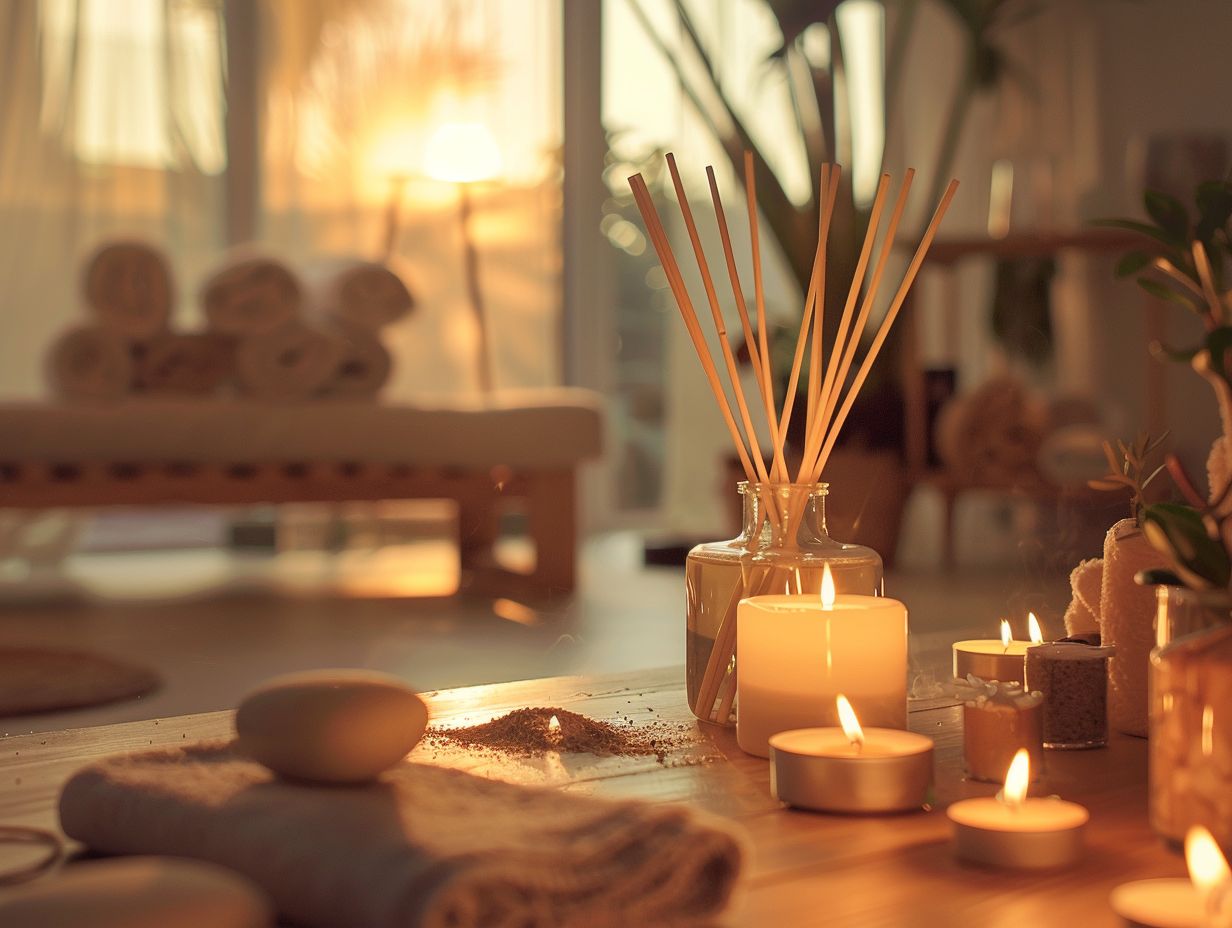
One of the key essential oils renowned for their calming properties is lavender. Inhalation or topical application of lavender oil has been shown to significantly reduce stress levels and induce relaxation.
Similarly, chamomile essential oil is another popular choice for alleviating anxiety symptoms and improving mood. The gentle aroma of chamomile can have a soothing effect on the mind and body, helping to ease feelings of tension and worry.
Improves Sleep Quality
Aromatherapy has shown promise in improving sleep quality and promoting relaxation, making it a valuable tool for individuals struggling with insomnia. By addressing emotional health through the use of essential oils, aromatherapy can contribute to better overall well-being.
The calming effects of aromatherapy can help create a conducive environment for sleep by reducing stress and anxiety levels. Lavender oil, known for its soothing properties, has been particularly effective in aiding relaxation and inducing sleep. Other essential oils such as chamomile and bergamot also play a crucial role in calming the mind and body, preparing them for a restful night’s sleep.
Boosts Immune System
Aromatherapy has the potential to boost the immune system and support overall physical health. Certain essential oils are known for their immune-boosting properties, making them valuable additions to aromatherapy practices.
One of the key essential oils widely recognized for its immune-boosting capabilities is Eucalyptus oil. Its antibacterial and anti-inflammatory qualities can help combat infections and promote respiratory health. Tea tree oil is another powerful oil that possesses antiviral properties, which can aid the body in fighting off illnesses. The soothing scent of lavender oil not only relaxes the mind but also contributes to reducing stress levels, indirectly supporting the immune system. These essential oils serve as natural complements to traditional healthcare practices, offering holistic benefits for physical well-being.
Relieves Pain and Inflammation
Aromatherapy is effective in relieving pain and inflammation through its holistic healing approach. Essential oils with analgesic and anti-inflammatory properties play a vital role in managing pain and reducing inflammation.
Amongst the renowned essential oils recognized for their pain-relieving properties is lavender oil, known for its calming effects that can help soothe both physical and emotional pain.
Eucalyptus oil, with its cooling sensation, is often used to alleviate muscle aches and joint pain.
Peppermint oil, characterized by its refreshing aroma, can provide relief from headaches and migraines.
Additionally, rosemary oil is valued for its anti-inflammatory properties, aiding in reducing swelling and discomfort.
How is Aromatherapy Used?
Aromatherapy can be used in various ways, including inhalation, topical application, and massage therapy. Each method offers unique benefits for physical and emotional well-being.
Inhalation: Inhaling essential oils through methods like steam inhalation or using a diffuser can have a direct impact on the limbic system, promoting relaxation and reducing stress levels. It is a quick and effective way to experience the mood-boosting and calming properties of essential oils.
Topical Application: Applying diluted essential oils directly on the skin can aid in managing pain, improving skin conditions, and enhancing relaxation. The oils penetrate the skin and enter the bloodstream, providing targeted relief. For more information on aromatherapy purposes, visit our website.
Massage Therapy: Combining essential oils with massage therapy not only allows for physical benefits such as pain relief and muscle relaxation but also enhances the overall therapeutic experience by promoting emotional well-being and reducing anxiety.
Inhalation
Inhalation is a common method of using aromatherapy, allowing the aromatic compounds of essential oils to interact with the olfactory system and influence brain function and hormones. This approach can have immediate effects on mood and well-being.
When you inhale essential oils, the molecules travel through the nasal passages and stimulate the olfactory nerves, sending signals directly to the brain. This direct pathway can trigger various emotional and physiological responses, such as calming effects, improved focus, or even increased energy levels. The rapid benefits of inhaling essential oils make it a popular choice for managing stress, anxiety, and enhancing overall emotional health. By leveraging the capabilities of scent, inhalation can be a simple yet effective way to support mental well-being and promote relaxation.
Topical Application
Topical application involves applying essential oils directly to the skin, allowing for absorption and potential therapeutic benefits. It is essential to follow safety guidelines to prevent skin irritation or allergic reactions.
Aromatherapy through topical application utilizes the skin as a gateway for essential oils to enter the bloodstream and exert their healing properties. Where Does Aromatherapy Work
When applied, these oils seep into the skin’s surface layers and are absorbed into the bloodstream, reaching various body systems. To ensure safe usage, it is crucial to dilute essential oils with carrier oils before direct application to avoid adverse reactions. Always conduct a patch test to detect any sensitivities or allergies before widespread use on larger skin areas. Protective measures including sunscreen application post-aromatherapy can further enhance skin protection.
Bathing
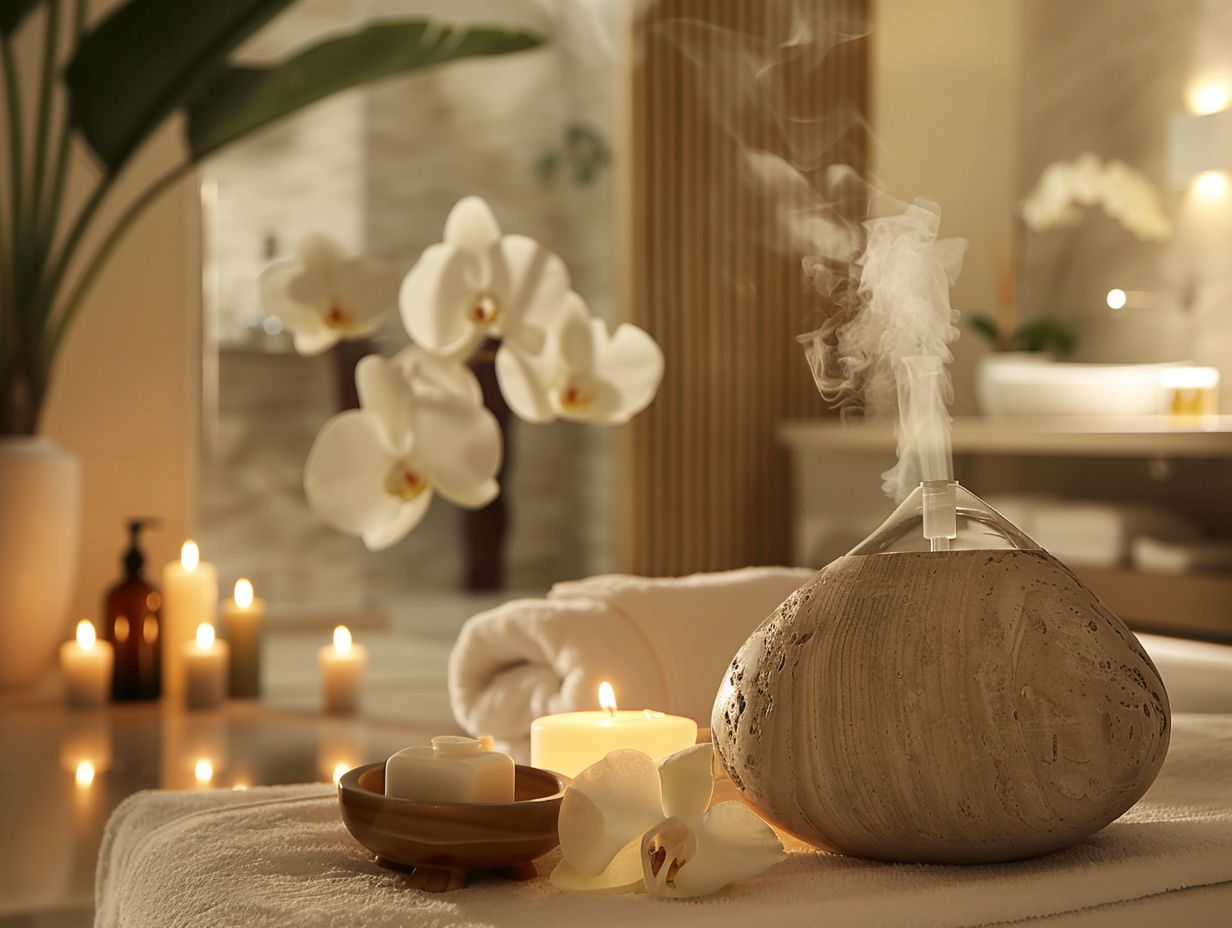
When combined, the aromatic properties of essential oils, such as lavender, chamomile, and eucalyptus, can create a harmonious blend that not only soothes the senses but also provides numerous health benefits. These oils have calming effects on the mind and body, helping to reduce stress and anxiety levels during the bathing experience.
The steam from warm bathwater opens pores, allowing the oils to penetrate the skin and enter the bloodstream more effectively. This process can aid in relieving muscle tension, improving circulation, and boosting overall well-being. The act of immersing in a soothing bath can create a tranquil ambiance that encourages deep relaxation and mindfulness.
Massage
Aromatherapy massage combines the benefits of touch therapy with the healing properties of essential oils. This holistic approach can effectively manage pain, reduce nausea, and improve overall well-being.
Regarding pain management, aromatherapy massage works on multiple levels. The physical manipulation of muscles and tissues during the massage helps alleviate tension and discomfort, while the aroma of the essential oils targets what aromatherapy is used for the nervous system to reduce pain perception. Certain essential oils like lavender and peppermint possess analgesic properties that further contribute to pain relief.
For individuals battling nausea, the gentle strokes and calming scents used in aromatherapy massage have shown to have a soothing effect on the digestive system. The combination of massage techniques, such as gentle pressure on specific acupressure points, with anti-nausea essential oils like ginger or lemon can significantly alleviate symptoms of nausea and promote digestive comfort.
Enhancing well-being through aromatherapy timing involves addressing both physical and emotional aspects. The relaxing nature of the massage, coupled with the aromatic influences of essential oils, can foster a sense of tranquility and reduce stress levels. This holistic approach not only benefits the body but also uplifts the mood and promotes a sense of overall wellness.
“Aromatherapy massage combines the benefits of touch therapy with the healing properties of essential oils. This holistic approach can effectively manage pain, reduce nausea, and improve overall well-being.
Regarding pain management, aromatherapy massage works on multiple levels. The physical manipulation of muscles and tissues during the massage helps alleviate tension and discomfort, while the aroma of the essential oils targets what aromatherapy is used for the nervous system to reduce pain perception. Certain essential oils like lavender and peppermint possess analgesic properties that further contribute to pain relief.
For individuals battling nausea, the gentle strokes and calming scents used in aromatherapy massage have shown to have a soothing effect on the digestive system. The combination of massage techniques, such as gentle pressure on specific acupressure points, with anti-nausea essential oils like ginger or lemon can significantly alleviate symptoms of nausea and promote digestive comfort.
Enhancing well-being through aromatherapy massage involves addressing both physical and emotional aspects. The relaxing nature of the massage, coupled with the aromatic influences of essential oils, can foster a sense of tranquility and reduce stress levels. This holistic approach not only benefits the body but also uplifts the mood and promotes a sense of overall wellness.
Compress
Aromatherapy compress involves using a cloth soaked in essential oils and warm water to alleviate inflammation and manage menstrual symptoms. This targeted approach can offer relief and promote comfort.
By harnessing the therapeutic properties of essential oils through localized application, aromatherapy compresses can effectively target specific areas of discomfort associated with menstrual issues. The gentle warmth and soothing scent of the oils not only aid in reducing inflammation but also help in relaxing the muscles and calming the mind.
- When applied to the lower abdomen, a combination of essential oils like lavender, chamomile, and clary sage can provide natural relief from cramps and bloating, offering a holistic approach to menstrual symptom management.
What are the Safety Precautions of Aromatherapy?
While aromatherapy offers numerous benefits, it is essential to follow safety precautions to avoid potential risks. Skin irritation, allergies, and the risks associated with improper use of essential oils should be carefully considered.
One of the key safety measures in aromatherapy is proper dilution of essential oils. Essential oils are highly concentrated and can cause adverse effects if used undiluted. Diluting essential oils in a suitable carrier oil like jojoba, coconut, or almond oil helps to reduce the risk of skin irritation and sensitization. It is recommended to follow guidelines for dilution ratios, typically ranging from 1-5% depending on the essential oil and the intended use.
Where is Aromatherapy Used?
Aromatherapy is utilized in various settings, including spa and wellness centers, hospitals and clinics, and for personal home use. Institutions like the Cleveland Clinic incorporate aromatherapy into their healthcare practices.
The application of aromatherapy in professional healthcare environments goes beyond just creating pleasant scents. Research suggests that certain essential oils have therapeutic benefits, such as reducing anxiety, improving sleep quality, and managing pain. In hospitals, aromatherapy is used to complement conventional treatments, offering patients a holistic approach to healing. At home, individuals can use aromatherapy to create a calming atmosphere, alleviate stress, or enhance mood. Aromatherapy products like diffusers, essential oils, and candles are widely available for personal use.
Spa and Wellness Centers
Spa and wellness centers often offer aromatherapy services to promote relaxation and reduce stress among clients. The calming ambiance and therapeutic benefits of essential oils enhance the overall spa experience.
Upon entering a spa, clients are greeted with soothing scents that immediately transport them to a state of tranquility. The strategic use of essential oils such as lavender, eucalyptus, and chamomile in diffusers, massages, and body treatments helps create a serene environment conducive to unwinding. These oils not only stimulate the senses but also have proven therapeutic properties that alleviate tension and instill a sense of calmness. Spa-goers often choose personalized blends that cater to their specific needs, whether it be relaxation, stress relief, or rejuvenation.
Hospitals and Clinics
Hospitals and clinics increasingly utilize aromatherapy as a natural and safe complementary therapy to support patient well-being.
Healthcare providers often integrate essential oils into treatment plans for their therapeutic benefits. These oils, derived from plant sources, are believed to have various healing properties and can be used in different forms such as topical application, inhalation, or even ingestion under professional guidance.
The use of aromatherapy in healthcare settings aims to enhance the overall healthcare experience by promoting relaxation, reducing stress and anxiety, improving sleep quality, and even boosting mood through the power of scents.
Home Use
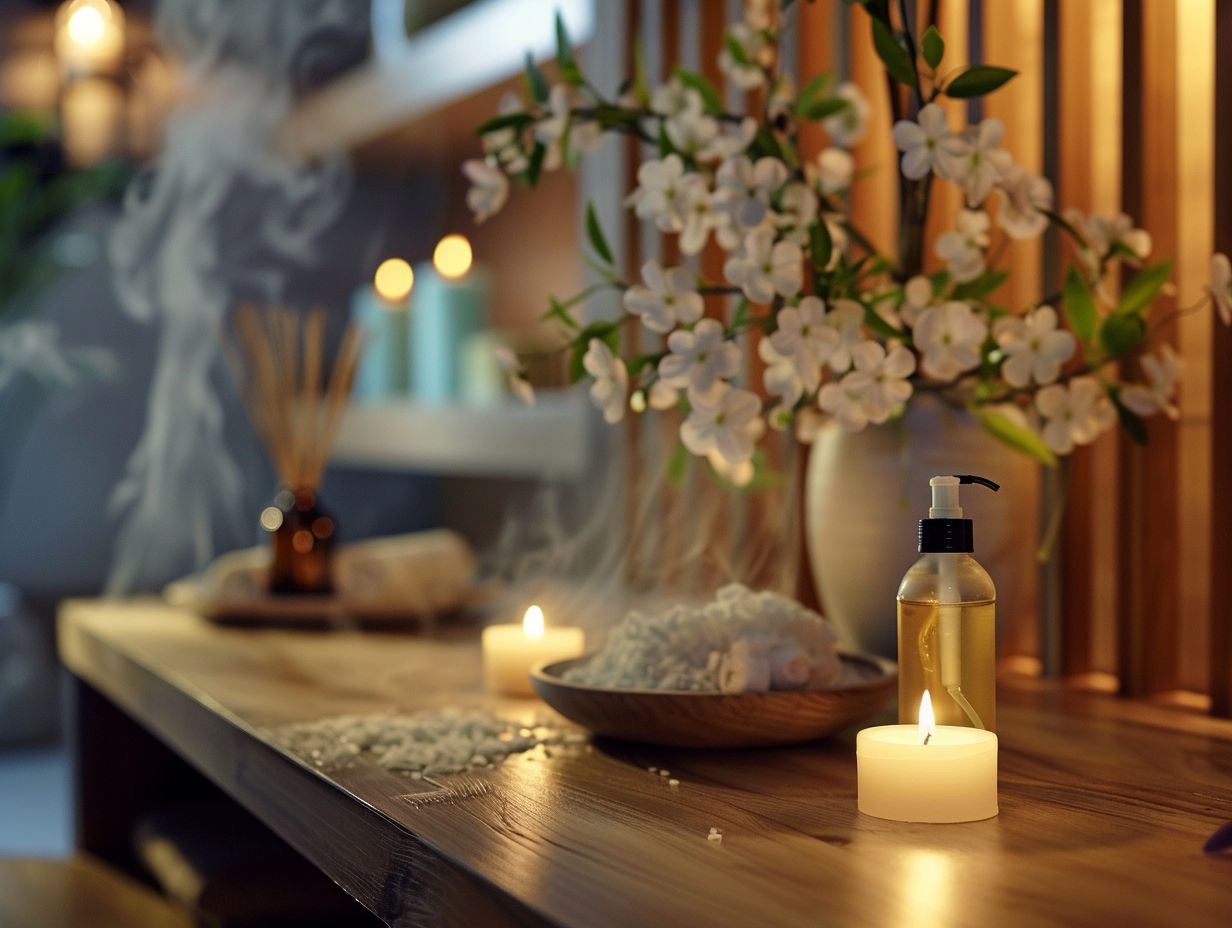
When incorporating aromatherapy into your daily routine, you can easily infuse calming scents like lavender or invigorating ones like peppermint into your home environment. With the rise of online platforms offering a plethora of essential oils, diffusers, and blends, finding the right products to suit your needs has never been more convenient. Whether you prefer to unwind with a soothing bath enhanced by essential oils or boost your focus during work hours with a diffuser by your side, the versatility of aromatherapy for home use makes it a holistic approach to enhance your overall well-being.
Frequently Asked Questions
Where is Aromatherapy Used?
Aromatherapy is a holistic healing practice that uses natural plant extracts to promote physical, emotional, and spiritual well-being. It can be used in a variety of settings for various purposes.
How is Aromatherapy Used in Spas?
Aromatherapy is commonly used in spas as a way to enhance relaxation and promote overall wellness. Essential oils are often diffused or used in massage treatments to create a calming and soothing atmosphere.
Is Aromatherapy Used in Hospitals?
Yes, aromatherapy is increasingly being used in hospitals as a complementary therapy for patients. Essential oils are used to help reduce stress and anxiety, promote pain relief, and aid in the healing process.
Where Else is Aromatherapy Used in Healthcare Settings?
Aromatherapy is also used in other healthcare settings such as nursing homes, hospices, and rehabilitation centers. It can be used to improve quality of life for patients and promote a sense of well-being.
How is Aromatherapy Used in the Home?
Aromatherapy can easily be incorporated into daily life at home. It can be used to create a calming and relaxing atmosphere, promote better sleep, and even help with minor ailments such as headaches or congestion.
Is Aromatherapy Used in the Workplace?
Yes, more and more companies are incorporating aromatherapy into the workplace as a way to promote employee well-being and create a more positive work environment. Essential oils can be diffused or used in personal inhalers to help reduce stress and increase focus.

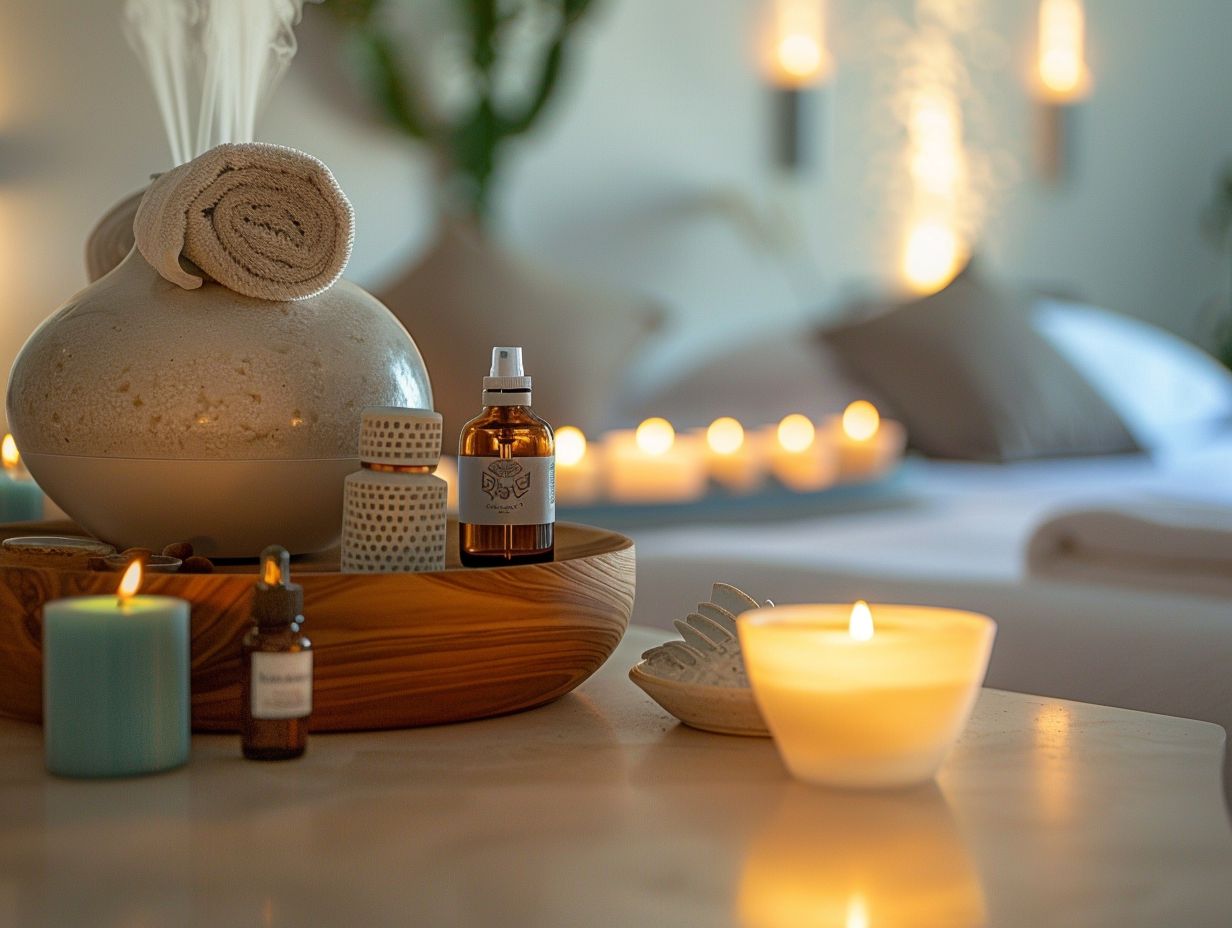
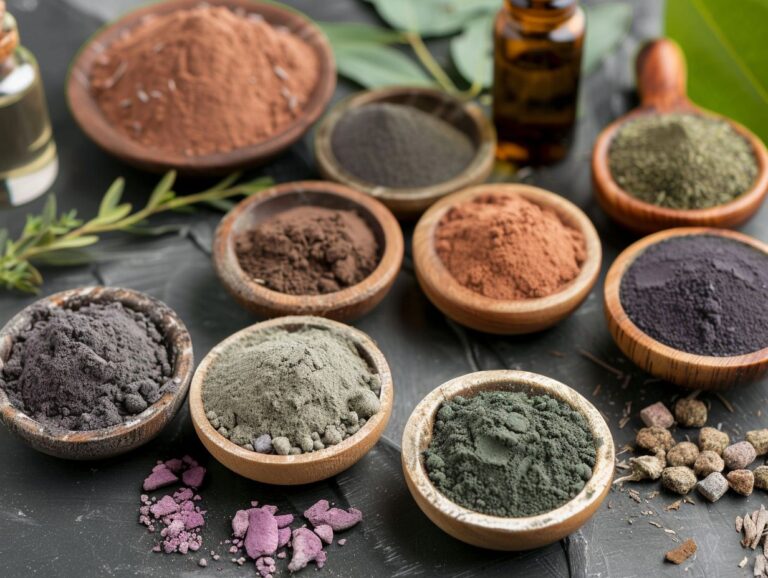
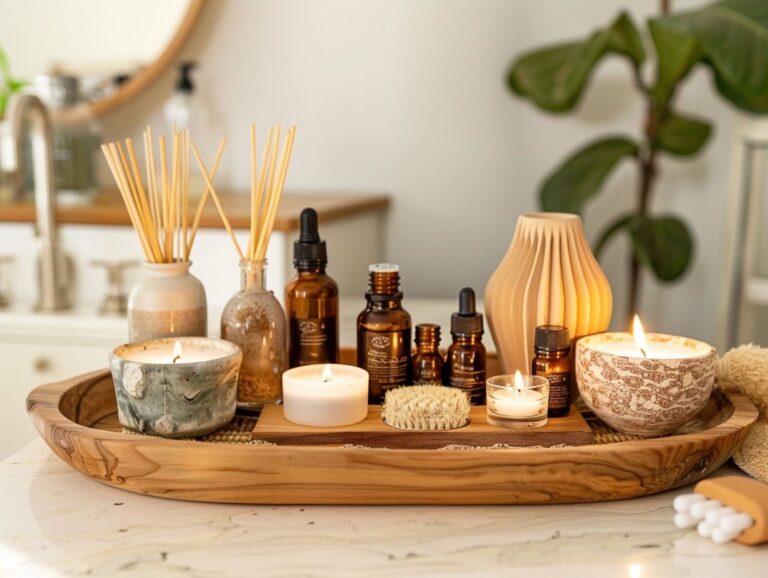
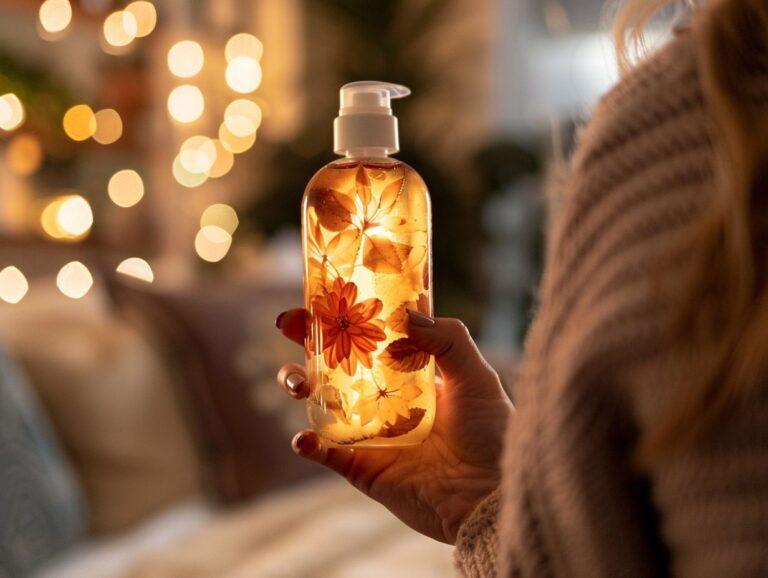
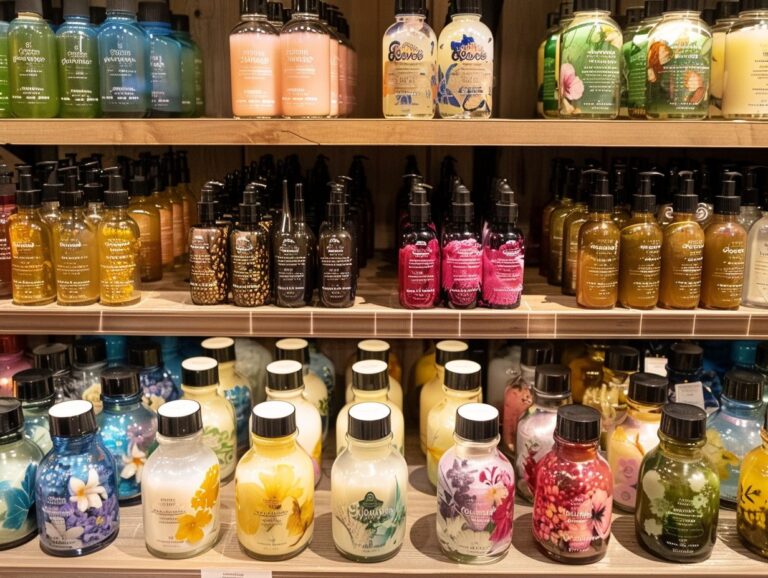
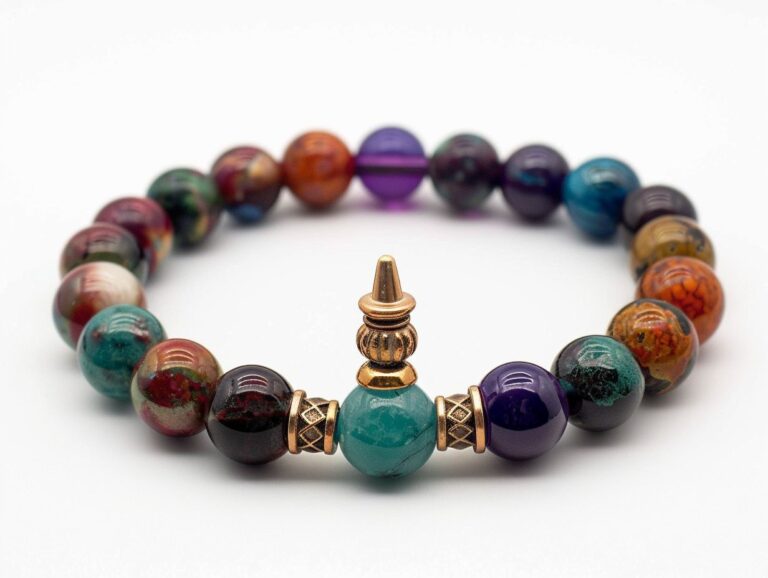
8 Comments